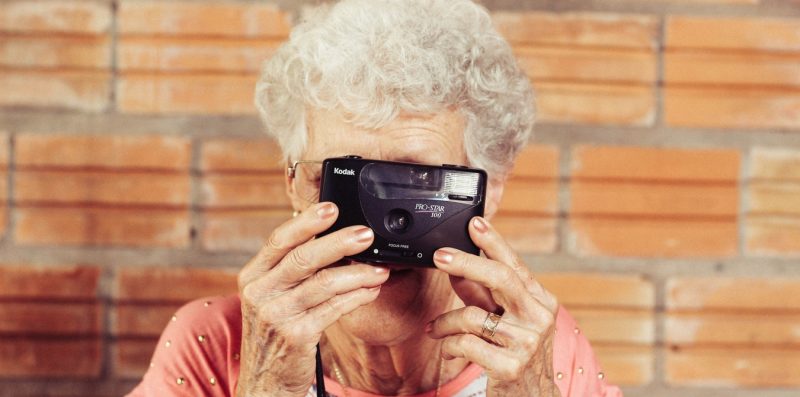Diagnosis: dementia - what to do?
The diagnosis of dementia comes as a shock to many. The victims and their relatives are under great strain. But there are many offers of assistance.
We are happy to offer you advice on living with dementia diagnosis, on various care options and on specialised consulting and support services for people with dementia and their relatives.
Dementia is expressed in many ways
Dementia is one of the most common diseases amongst elderly people. It should be noted that dementia is an umbrella term for multiple illnesses involving limited mental function, such as perception, thinking and memory. The most common form is Alzheimer’s.

At home, in a shared flat community or in a nursing home
People with dementia have a hard time coping with everyday life. There are many simple ways of making life in your own home easier: always leaving your comb in the same visible location, for example. Maybe a daycare facility will suit you or your loved one? This option allows people with dementia to spend the day safely and independently. Often, a flat-sharing community is the appropriate residential form for people with dementia or, in later phases, maybe a specialised nursing home.
Working together with dementia
Supporting a loved one through the stages of dementia is a difficult task. How to deal with the dementia of your father? And who should make decisions for him when he can no longer do so himself? Ask us about ways to prepare with a health care proxy, an advance healthcare directive or a living will. We provide family members who care for people with dementia with emotional and practical support and assist them with questions regarding health insurance benefits.
3 – The Challenge of Dementia
Dementia is the generic term for illnesses that are accompanied by a loss of mental functions such as thinking, remembering, orientation and making links between the content of different thoughts. It is a disturbance of the brain’s ability to function....
Read more Fact sheet no. 3 (210 KB)4 – Offers for support in everyday life
The offers for support in everyday life is meant to provide support and burden relief to caregiving relatives and other related caregivers. This enables people who are in need of assistance to be more independent and self-reliant in everyday life....
Read more Fact sheet no. 4 (85 KB)8 – Respite Care –“ Short-term Care
Domestic care when the care provider is unavailable (respite care) When a private caregiver is unavailable due to holidays, sickness or for other reasons prevented to perform care, the nursing care insurance covers the costs of the required substitute care...
Read more Fact sheet no. 8 (215 KB)9 – Outpatient care
People who are in need of care have the option to be cared for outside of the family for part of the day. In this case, day-patient care can be provided. The right to day-patient care is not limited in...
Read more Fact sheet no. 9 (175 KB)10 – Geriatric Day Clinic
Patients can be treated in a geriatric day clinic following in-patient treatment or in lieu of hospitalization. For the health care of older people, the day clinic is an important link between out-patient and in-patient clinics.
Read more Fact sheet no. 10 (76 KB)11 – Full-time nursing care
If home or outpatient nursing care is no longer sufficient, it may become necessary to move to a nursing home. Full-time nursing care is mainly used by people who are in need of care in the sense of the nursing...
Read more Fact sheet no. 11 (41 KB)24 – Health Care Proxy – Power of Attorney for Care – Patient Decree
An accident, a stroke, surgery or other events can affect anyone unexpectedly and lead to situations in which one cannot be responsible to act and make decisions. In these cases, family members can decide only with a power of attorney....
Read more Fact sheet no. 24 (72 KB)25 – Legal Guardianship
A legal guardian should be considered when an adult is temporarily or permanently no longer able to take care of all or some of their personal affairs due to a mental illness or a mental, emotional or physical impairment. Initially,...
Read more Fact sheet no. 25 (74 KB)27 – Consultation and aid in case of impaired memory in old age
Increasingly more people suffer from impaired memory and orientation at higher age. These impairments may have very different causes. Increased attention must be paid if an individual can no longer manage their everyday life due to difficulties with memory and...
Read more Fact sheet no. 27 (144 KB)29a – Check list living environment for individuals with dementia
This checklist gives examples of how flats can be adjusted to the requirements of individuals with dementia. The living environment/flat should be adjusted to the personal abilities of the individual with dementia taking into account spatial conditions. The changes should...
Read more Fact sheet no. 29a (26 KB)30 – Check listflat sharing communities for individuals with dementia
This check list intends to help you selecting a flat sharing community (WG) for individuals with dementia. It helps you to clarify, what is important to you. Carefully consider what you can and want to contribute, but also what the...
Read more Fact sheet no. 30 (212 KB)40 – Travel – respite and recovery
For persons in need of help and care and their relatives Travel is fun and increases the joy of life, often far beyond the holiday period itself. Mobility impaired people, those diagnosed with dementia or parents with children in need...
Read more Fact sheet no. 40 (264 KB)41 – 24 – hour nursing care and supervision at home
Many persons in need of care want / or require 24-hour care in their home. Often, however, this exceeds the mental and physical capabilities of the relatives. The following options are available as full-time care and care can be organized...
Read more Fact sheet no. 41 (142 KB)